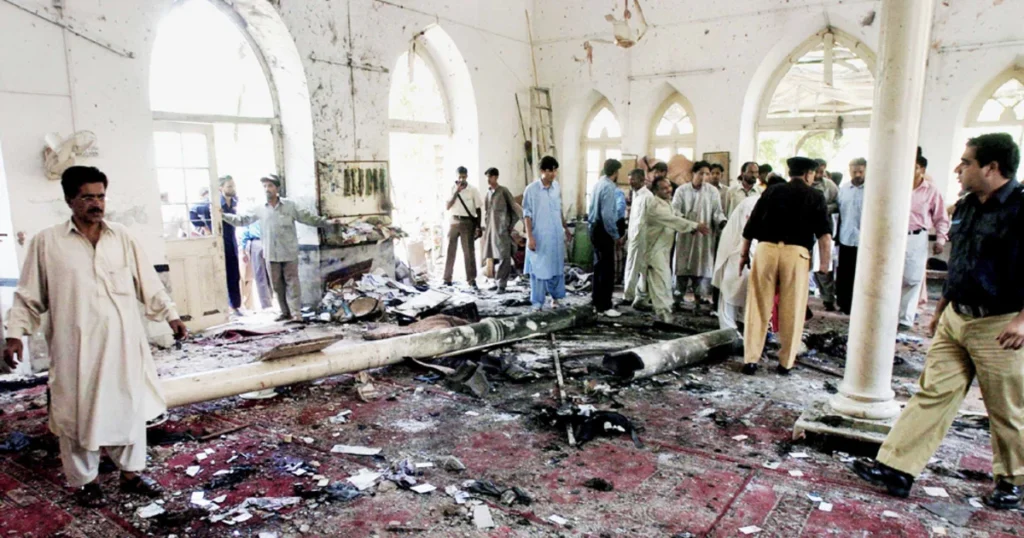A suicide bombing at a mosque inside the Darul Uloom Haqqania seminary in northwestern Pakistan killed at least six people, including prominent religious scholar Hamid-ul-Haq, and injured at least 20 others, authorities said Friday.

The attack took place just after Friday prayers in Akora Khattak, a town in Khyber Pakhtunkhwa province. Police said the blast appeared to target Hamid-ul-Haq, leader of the religious political party Jamiat Ulema Islam-Sami (JUIS), who was among the dead.
Provincial police chief Zulfiqar Hameed confirmed that the explosion was a suicide attack. “At least three policemen were injured in the blast,” he told reporters.
Prime Minister Shehbaz Sharif strongly condemned the bombing, vowing continued efforts to combat terrorism.
“Such cowardly and heinous acts of terrorism cannot dampen our resolve,” Sharif said in a statement.
No group immediately claimed responsibility, but security analysts believe the Islamic State Khorasan Province (ISKP) may be responsible.
“Given the symbolism of this seminary and its history, it is highly likely that the attack was carried out by ISKP,” said Islamabad-based security analyst Ihsanullah Tipu. “The group has ideological differences with the Afghan Taliban and their supporters.”
Darul Uloom Haqqania is a Deobandi seminary founded in 1947. It was previously led by Sami-ul-Haq, Hamid-ul-Haq’s father, who was known as the “Father of the Taliban.” Sami-ul-Haq was assassinated in 2018.
Hamid-ul-Haq, a former member of Pakistan’s National Assembly, became JUIS president after his father’s death. He had advocated for Pakistan to recognize the Afghan Taliban government and had led religious delegations to Afghanistan.
The seminary has produced several high-profile Afghan Taliban leaders, including Afghanistan’s interim interior minister Sirajuddin Haqqani and interim foreign minister Amir Khan Muttaqi.
Khyber Pakhtunkhwa has witnessed multiple attacks on mosques in recent years. In January 2023, a suicide bomber killed more than 100 people at a mosque inside a Peshawar police complex. While no group claimed responsibility, ISKP has been linked to numerous attacks on civilians and security forces in Pakistan.
In July 2023, an ISKP-claimed bombing targeted a rally organized by Jamiat Ulema Islam-Fazl (JUIF), a rival Deobandi faction, killing nearly 60 people in Bajaur district.
Pakistan has seen a surge in militant attacks in recent years, with over 1,500 deaths recorded last year. Most of these were attributed to the Tehreek-e-Taliban Pakistan (TTP), an ally of the Afghan Taliban.
Tipu, co-founder of security research portal The Khorasan Diary, emphasized the significance of the bombing.
“This seminary has deep historical ties to the Afghan Taliban. Many of its students fought against U.S. and NATO forces, and the Afghan Taliban are actively cracking down on ISKP,” he said.
The Afghan Taliban, which follows Sunni Islam’s Deobandi school, considers ISKP a “Takfiri” group—an excommunicated faction.
“This attack, targeting a mosque on a Friday, will likely be used by the Afghan Taliban and their supporters to reinforce their claim that ISKP is not part of Islam,” Tipu added.
Security forces continue investigations, while the Pakistani government faces increasing pressure to counter the rising threat of militant violence across the country.



